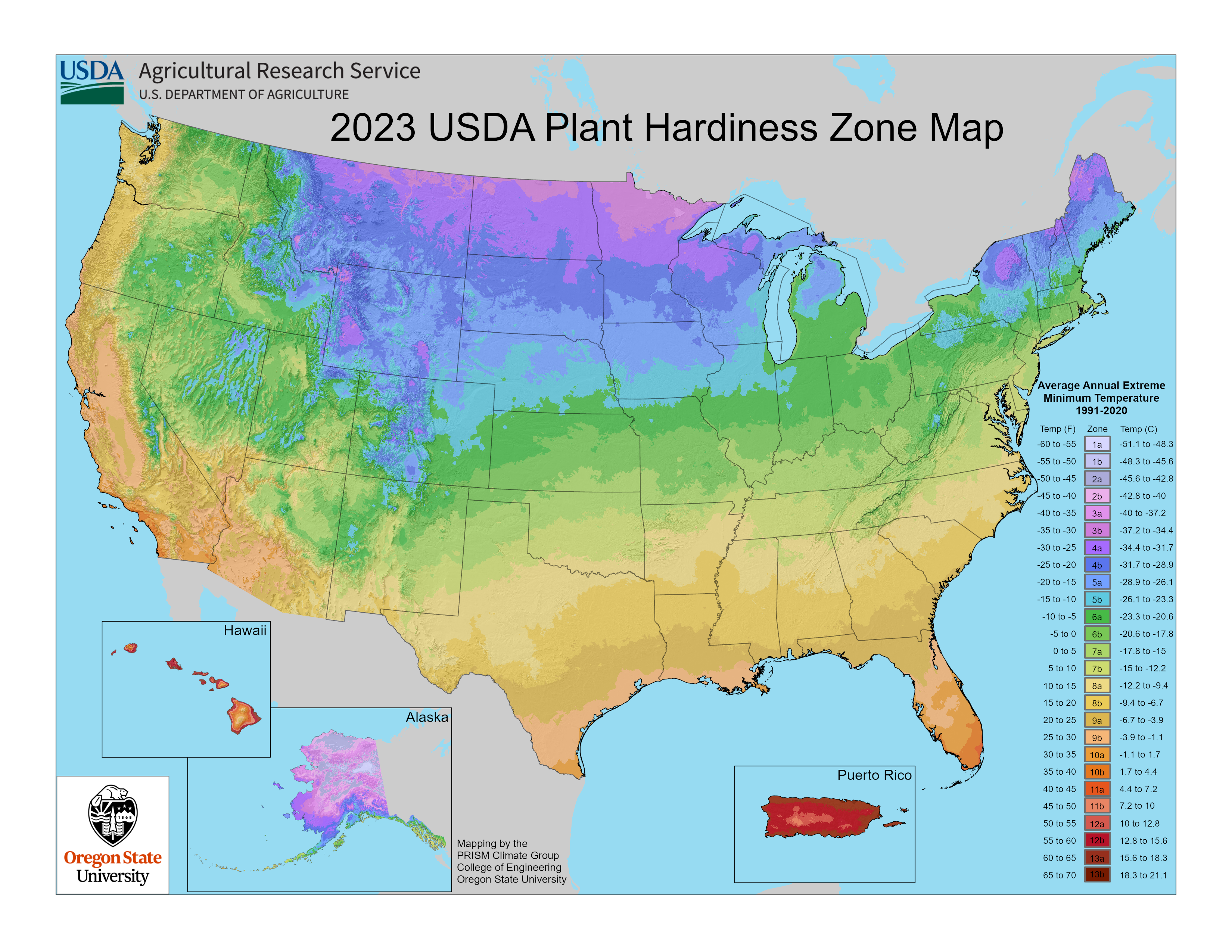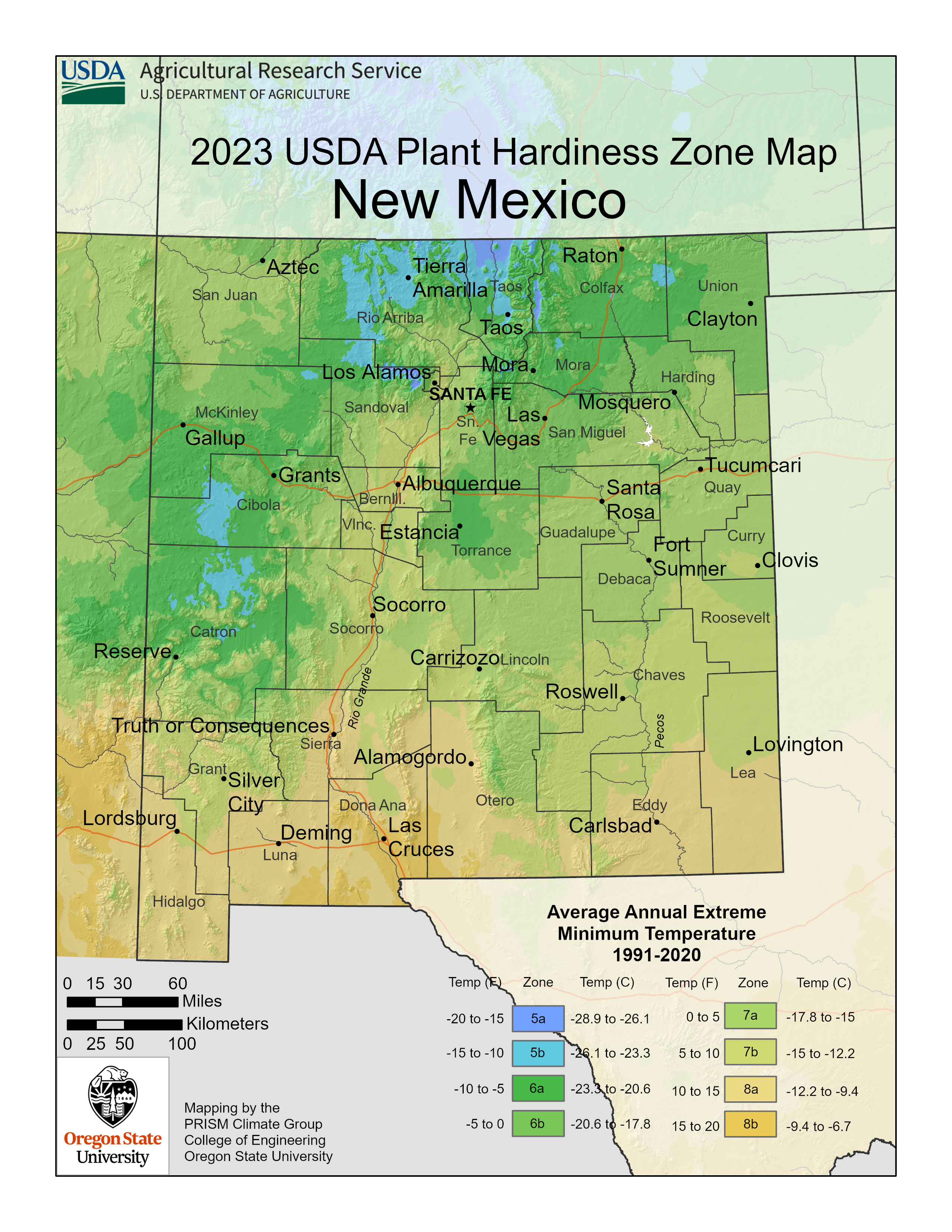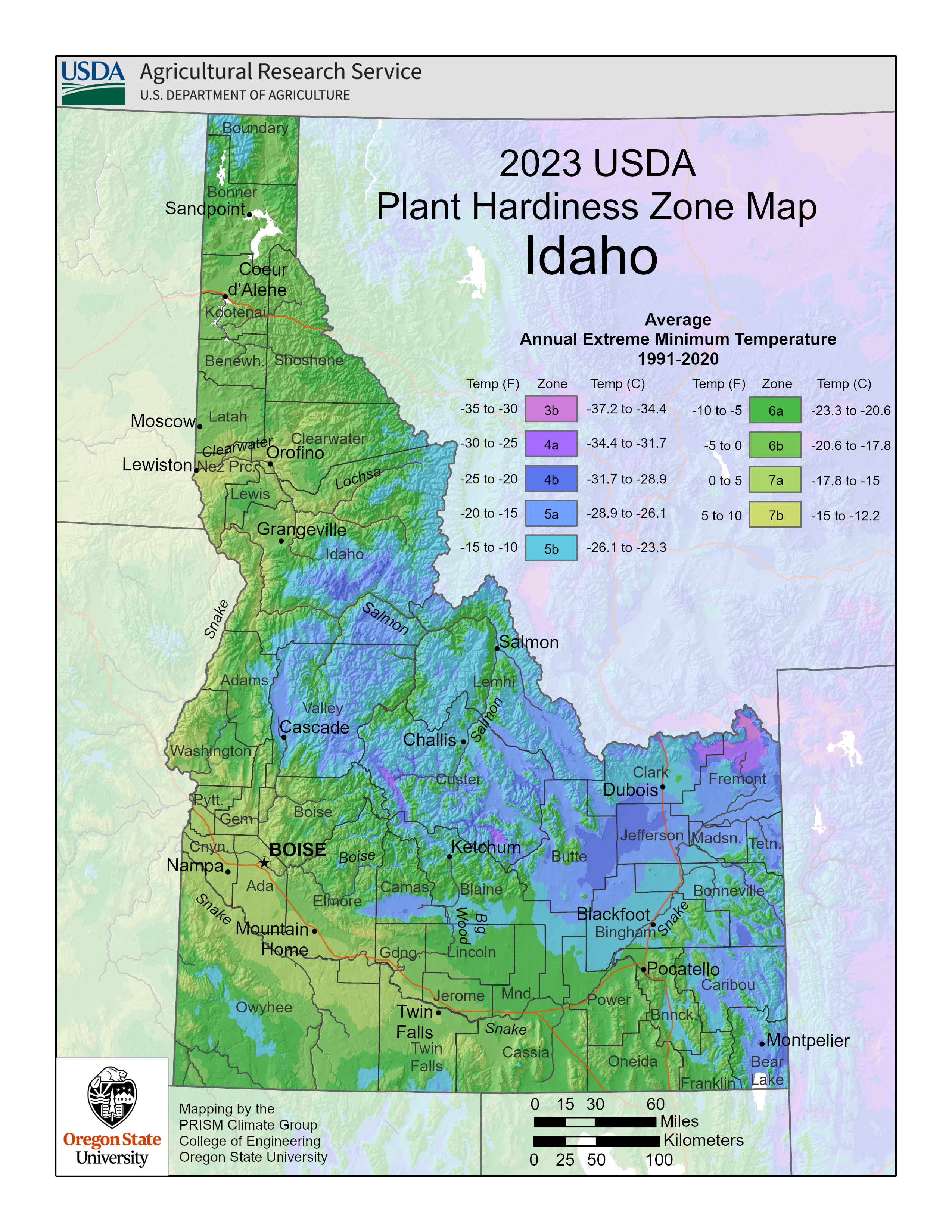Mango trees, just like other types of fruit trees, require constant care, especially in the first three years of growth, or until they bear fruits.
One way of caring for mango trees is by applying fertilizers to promote their growth and nourishment.
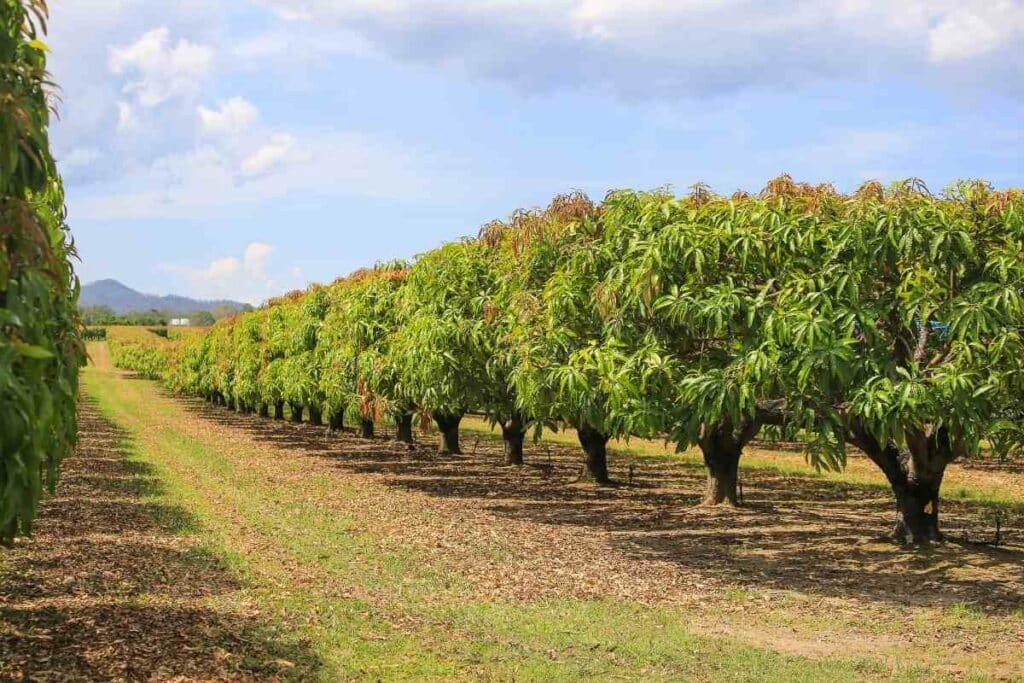
Both chemical and organic fertilizers are effective.
Typically – The trees should be fertilized before they flower, not during. Different trees have different fertilizer needs, depending on their age and size.
Often, mango trees require similar fertilizers as citrus trees.
Keep reading through this guide to learn more about mango tree fertilizers.
Components Of Mango Tree Fertilizers
The best fertilizers for mango trees are made up of a combination of nitrogen, phosphorous, and potassium, commonly abbreviated as NPK.
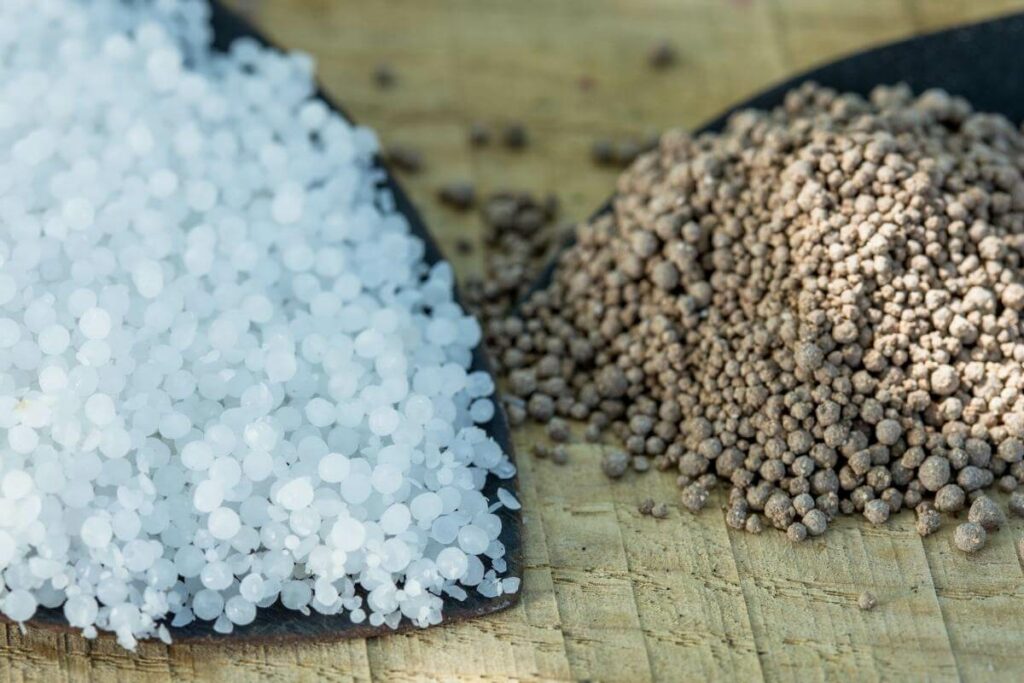
Also known as the NPK factor, these nutrients play specific roles in the nourishment of a mango tree:
- Nitrogen: Nitrogen plays a big role in nourishing the stem and leaves of a mango tree. It also enriches the green of the tree to make it look lustrous.
- Phosphorous: Phosphorous is responsible for promoting the flowering of the tree and the production of juicy and fleshy fruits. It also strengthens the roots.
- Potassium: Primarily, potassium regulates the leaves, seeds, and fruits of the tree. It also helps in the development of branches and makes them stronger.
The best mango tree fertilizers tend to have an NPK ratio of 1-1-1 or 2-2-2.
Either way, the ratio tends to vary as per the needs of individual trees.
Some fertilizers come with extra nutrients like zinc, iron, and manganese that further promote the healthy growth of the tree.
Keep In Mind: While young mango trees need large amounts of nitrogen supplements, mature trees need very little of them. Instead, they require large amounts of potassium. The reason behind this will be discussed late in the article.
Types of Mango Tree Fertilizers
There are various types of mango tree fertilizers depending on their physical form, how they are applied, and even their content.
The main ones include the following.
1. Granular Fertilizers
These come in the form of pallets or course powder coated with sulfur or polymer.
One distinguishing characteristic of granular fertilizers is that they are slow-releasing, meaning that they break down over a period of time.
They break down by a small percentage every time you water the plant. Most packages come with clear instructions on how to correctly use this type of fertilizer.
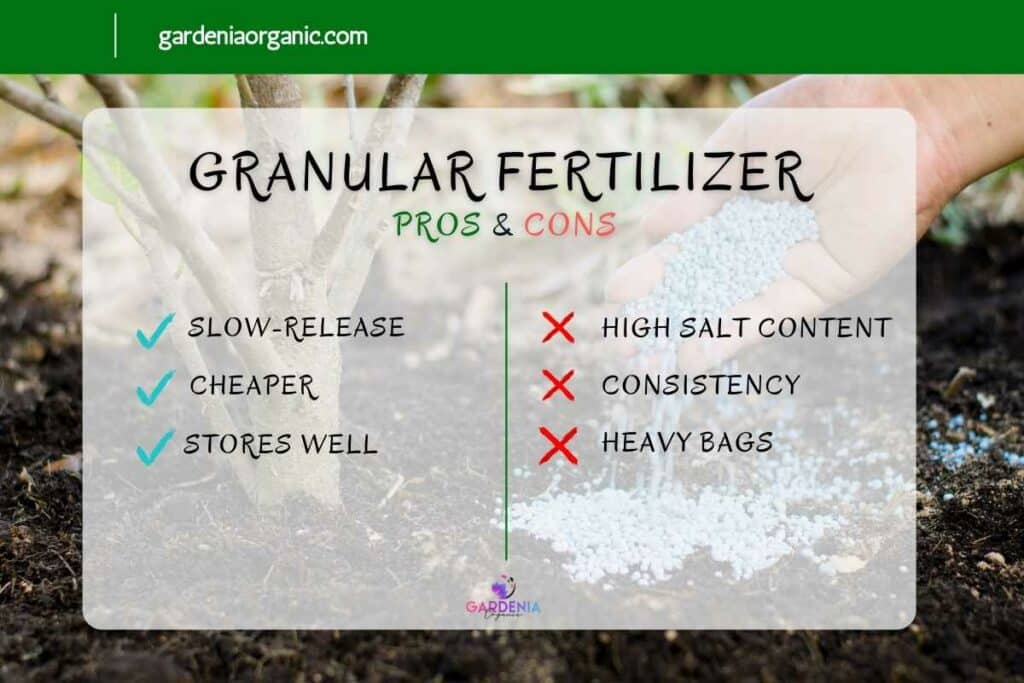
Usually, they ask that you add it to the planting hole before inserting your tree.
Compared to other types of fertilizers, granular fertilizers are cost-effective, especially when bought in bulk. Also, they are easy to store.
2. Fertilizer Spikes
Fertilizer spikes are pre-measured fertilizers that are applied by hammering them into the soil around your mango tree.
Just like granular fertilizers, they release nutrients slowly and can last for up to 9 months, depending on the brand.
While they have chemical content, they do not pose health risks to people or pets since they are hidden below the ground.
Their one downside is that they are pricier than other types of fertilizers, but at least they have value for money.
3. Liquid Concentrate Fertilizers
This type of fertilizer requires diluting with water before it is distributed at the base of the tree.
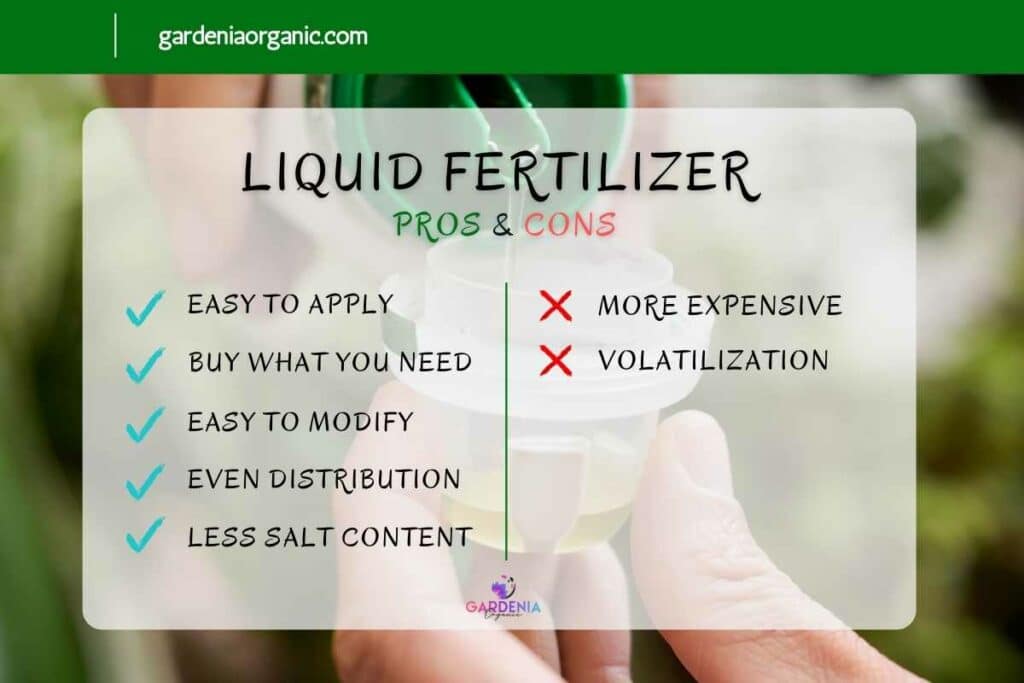
Once applied, nutrients are absorbed into the soil and transported to the tree’s roots.
Liquid concentrate fertilizers work immediately and do a good job of balancing the pH of soil.
However, since it is an overconcentrated formula, you will have to be careful during application.
This is because it is easy to overfeed the plants and cause root burn, especially in young, developing mango trees.
4. Organic and Inorganic Fertilizers
Organic Fertilizers
These are more preferred because they are made up of natural ingredients, which are healthy and safe for trees and the environment.
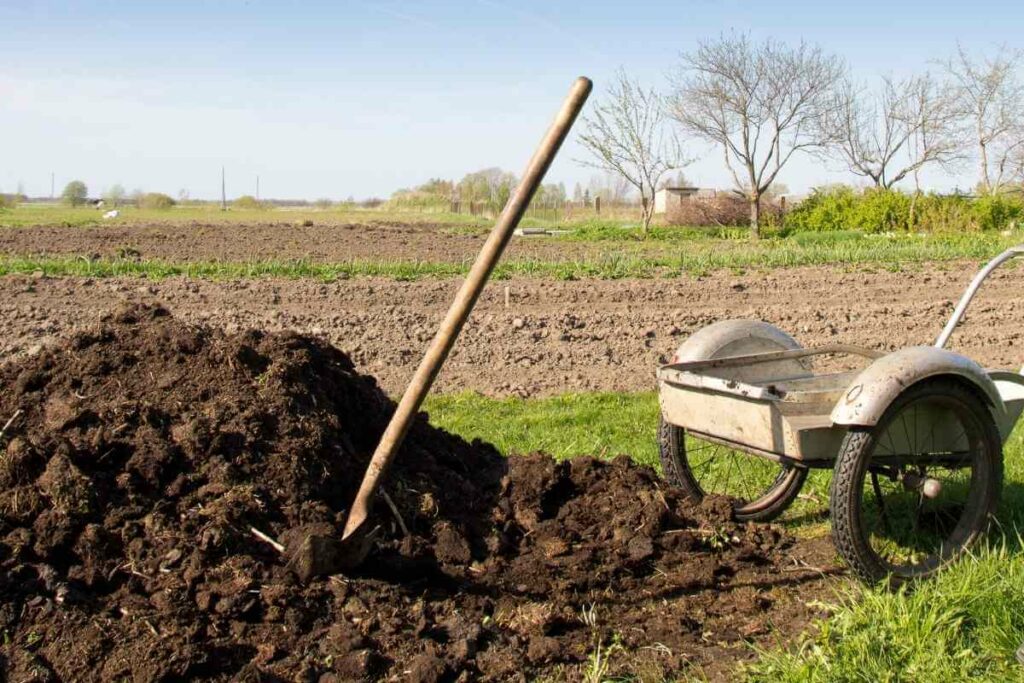
Organic fertilizers contain plant and animal ingredients.
Animal ingredients include bone meal, manure, and fish meal. Elsewhere, plant ingredients include rotten fruits and composted plant parts.
Since they are made with renewable ingredients, organic fertilizers provide a good long-term solution.
Also, they have high nitrogen content.
Inorganic Fertilizers
These are are manufactured with chemical nutrient compounds.
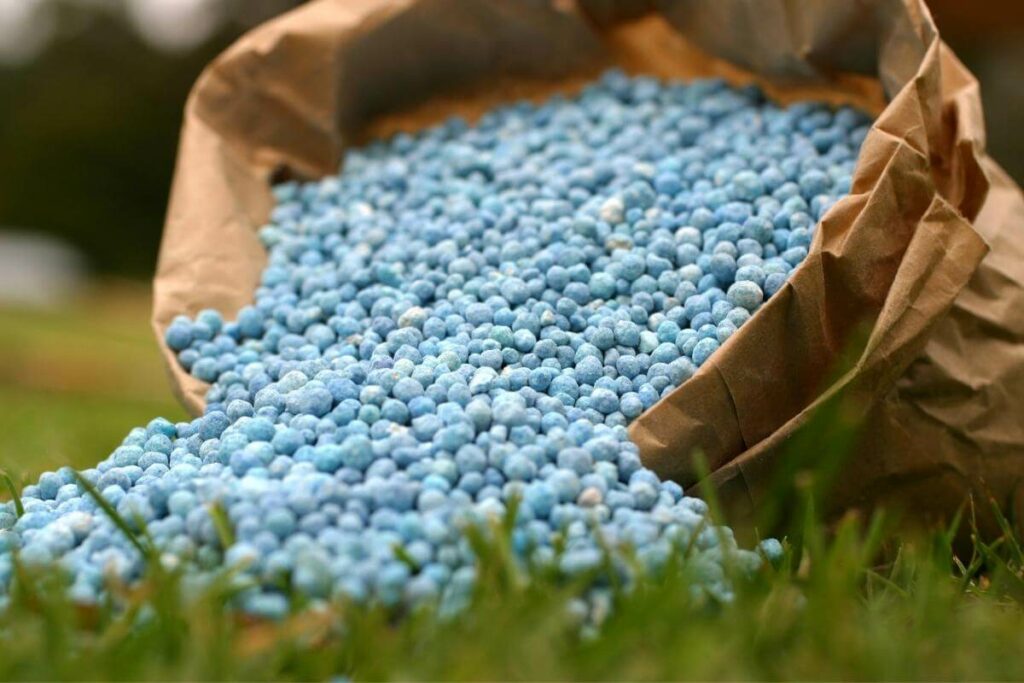
Unlike organic fertilizers, they produce little to no odor.
You ought to use inorganic fertilizers in moderation because overusing them could harm the soil, the plants, and nearby people and pets.
5. Homemade Fertilizer for Mango Tree
You can make a mango tree fertilizer at home using readily available ingredients – tea powder and groundnut cake.
Here is the process:
- Start by boiling 4.4 pounds of tea powder.
- Then mix it with 22 pounds of groundnut cake. At this point, add half a liter of curd and let the mixture sit for about three days.
- Before applying it to a mango tree, dilute it with 5 liters of water.
This homemade mango tree fertilizer induces a high yield and protects the tree from diseases.
Factors That Determine the Best Fertilizer to Use on a Mango Tree
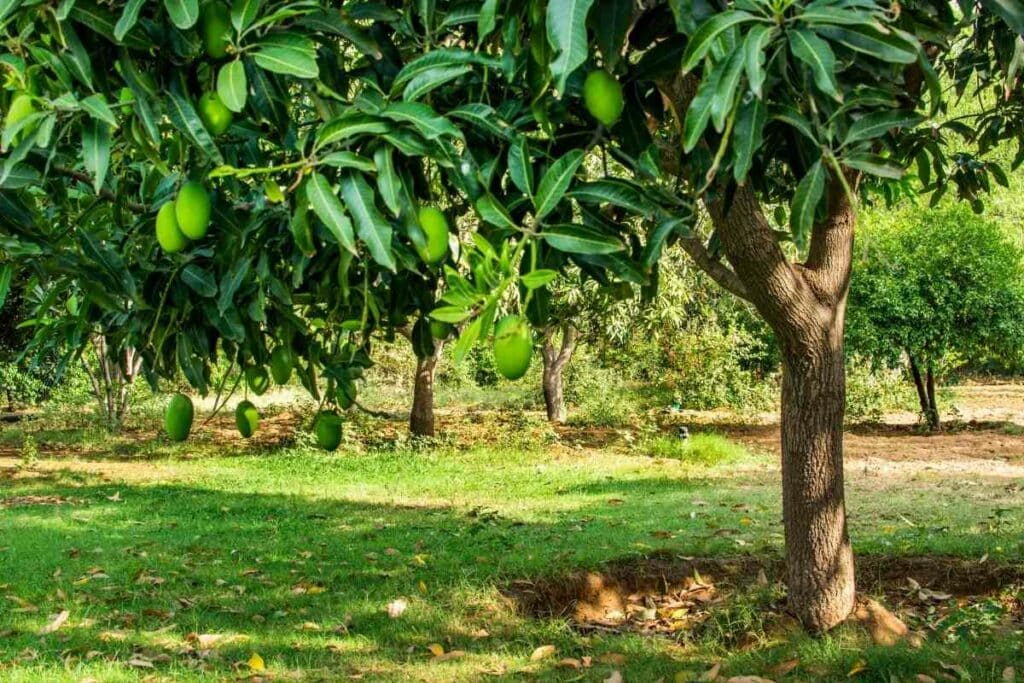
The fertilizer needs of a mango tree depend on three main factors:
- the size of the tree
- the age of the tree
- and the soil’s pH level
Size of the Mango Tree
Bigger, mature trees require different fertilizer compositions compared to smaller ones.
For instance, grown mango trees require a high concentration of potassium, while small ones need more nitrogen than phosphorous and potassium.
Age of Mango Tree
The age of the tree determines the amount and composition of fertilizer they require.
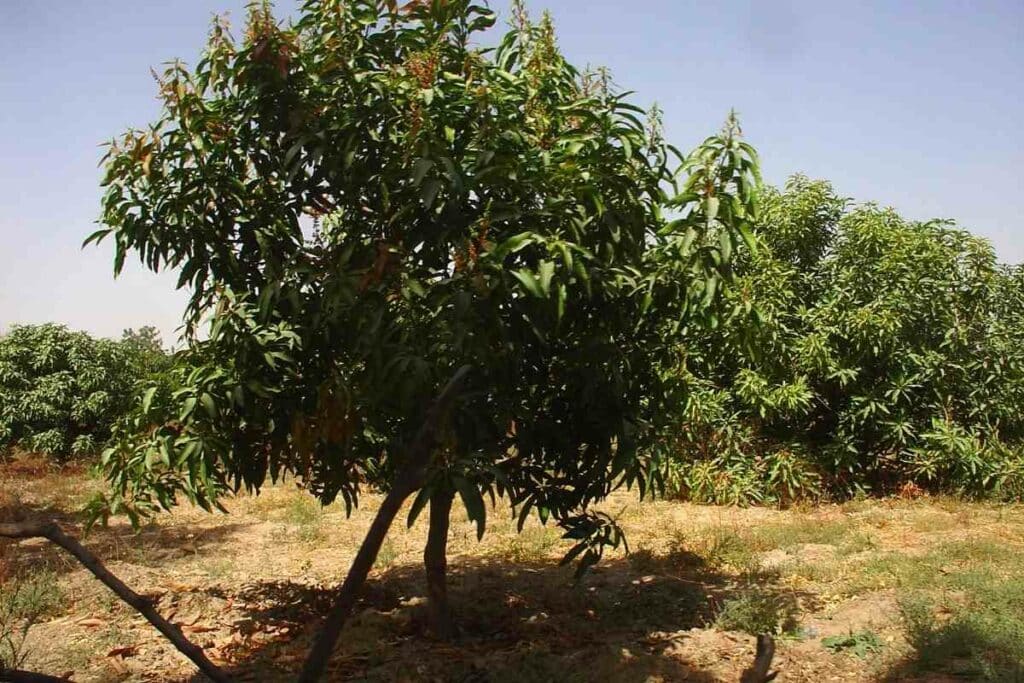
First-year mango trees need 1 to 2 pounds of slow-release 10-20-20 fertilizer. The fertilizer should be applied 3 to 4 times before the tree starts showing signs of growing.
Trees in their second and third years of growth require 1 ½ to 3 pounds of 10-20-20 fertilizer.
The fertilizer should be applied 3 to 4 times before the tree starts flowering and bearing fruits.
The pH Level of the Soil
Mango trees grow well in soil that has a pH level of 6 to 7.
You ought to know the pH of the soil to determine the fertilizer needs of the mango tree.
Without the right pH, the tree will not thrive.
Best Fertilizers for Mango Trees
1. Dr. Earth 708P Organic 9 Fruit Tree Fertilizer in Poly Bag
Key Features
- 100% natural ingredients
- Slow-feeding fertilizer
- NPK ratio of 5-5-2
This fertilizer is good for promoting the growth of healthy roots and fruits.
As an organic fertilizer, it is made with 100% natural ingredients, making it safe for the environment, the tree, and people handling the fertilizer.
Additionally, it is slow feeding, meaning it remains in the soil for several months.
Also, it contains probiotics and beneficial soil microbes that promote the growth of healthy roots.
Pros
- It is easy to use
- It has value for money
- It is organic
- It is safe to use around people and pets
Cons
- It has an unpleasant smell
Using this fertilizer results in nutritious fruits and also stabilizes the growth of the tree. Furthermore, it presents no growth spikes.
The NPK ratio on this fertilizer is 5-5-2, and using it correctly eliminates the need for chemical fertilizers.
2. CITRUSGAIN 2lb bag, Citrus Fertilizer
Key Features
- Has high nitrogen content
- NPK ratio of 8-3-9
- Weighs 2 pounds
While it is made for citrus trees, this fertilizer is also perfect for mango trees.
It has a lot of nitrogen content, which is essential for the growth and nourishment of young mango trees.
The fertilizer also provides magnesium, manganese, copper, zinc, and copper.
Furthermore, it is easy to use. You only need to sprinkle it around each plant in a circular motion. The application should be on topsoil.
Avoid applying it against the trunk at the base of the plant. Another requirement is that you should water it sufficiently.
Pros
- Easy to use
- It has many nutrients
- You don’t need a lot of it as it lasts a long time
Cons
- It is inorganic
The NPK ratio of this fertilizer is 8-3-9, and as per the directions, it should be applied every 4 to 6 weeks during the growing season.
This fertilizer promotes high yield, growth, and healthy fruits.
3. Down to Earth Organic Citrus Fertilizer
Key Features
- NPK ratio of 6-3-3
- Organic
- Contains primary and secondary plant nutrients
This 6-3-3 formula has the perfect ratio of nitrogen, phosphorous, and potassium to promote healthy foliage, bountiful fruit, and lush growth.
It is organic, making it safe and environment-friendly.
Its ingredients include fish bone meal, feather meal, basalt, greensand, and kelp meal.
Pros
- Easy to use
- Easy to spread
- It has value for money
- It smells nice
Cons
- It requires you to mix it into the soil
Additionally, the fertilizer is made with primary and secondary plant nutrients such as calcium, sulfur, zinc, and iron.
How Often Should You Fertilize Mango Trees?
The frequency of fertilizing your mango tree will depend on the age of the tree and the type of fertilizer.
Young mango trees are fertilized three times in a season.
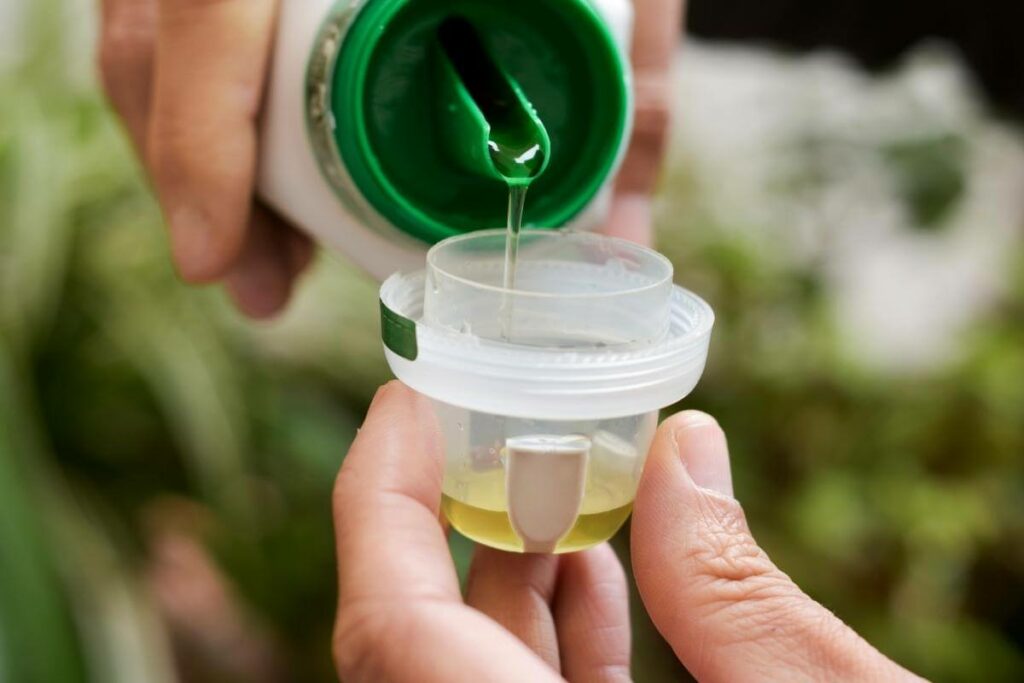
A mature mango tree is fertilized once before flowering and once after fruition.
For slow-releasing fertilizers like granular fertilizer, they are used once a year.
Liquid concentrate fertilizers should be applied once every two months.
Final Thoughts
Mangoes are some of the most delicious fruits there are.
Therefore, it only makes sense to want to take good care of mango trees. Fertilizers help to nourish and promote the growth and health of these trees.
The fertilizers have three major ingredients; nitrogen, phosphorous, and potassium.
There are several types of fertilizers for mango trees, including granular, fertilizer spikes, and liquid concentrate fertilizers.
